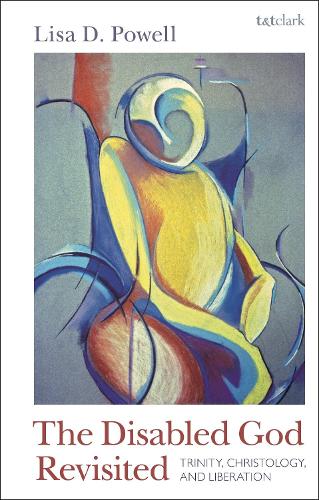
The Disabled God Revisited: Trinity, Christology, and Liberation
(Hardback)
Available Formats
Publishing Details
The Disabled God Revisited: Trinity, Christology, and Liberation
By (Author) Associate Professor Lisa D. Powell
Bloomsbury Publishing PLC
T.& T.Clark Ltd
18th May 2023
United Kingdom
Classifications
Tertiary Education
Non Fiction
231.044
Physical Properties
Hardback
168
Width 144mm, Height 220mm, Spine 14mm
334g
Description
Lisa D. Powell strengthens and amplifies the claim that God is disabled, made by Nancy Eiesland in her ground breaking book The Disabled God (1994). She offers an alternative understanding of the doctrine of God and the Trinity, resulting in a God who is not autonomous and utterly independent. According to this view, Gods triune identity is established in Gods decision for covenant, and thus creation is a requirement for the fulfillment of Gods nature - not only is the Son always anticipating full embodiment and human nature, but more specifically is eternally anticipating an impaired body. Powell argues that God is not only interdependent within the immanent Trinity, but God experiences real dependency, risk and vulnerability from Gods original self-determination. Powell revisits Eieslands claim about Christs resurrected body and her conclusions about eschatological embodiment, arguing that it is the able-body that does not persist eschatologically, but all humanity journeys toward ever more transparency, vulnerability and interdependency as the Body of Christ.
Reviews
Nancy Eieslands Disabled God has shaped several generations of disability theologians, despite leaving some important theological questions unasked. Gathering together various criticisms in an extremely helpful way, Lisa D. Powell constructively and sympathetically extends Eislands liberation theology, and shows why the doctrine of God remains generative for a liberative theology today. -- Brian Brock, University of Aberdeen, UK
Do not let yourself be fooled by the modest title claim! Powells magnificent book is much more than a mere revisiting of Eieslands landmark Disabled God. Masterfully combining crip theory, queer critique, and Barths doctrine of election, Powell offers nothing short of a theological ontology of God as disabled, while at the same time pulling the rug out of disability as a human identity category. Finding the triune God constituted in the eternal election of the (impaired body of the) Son, she reclaims receptivity for a kenotic Christology from its feminist critics, develops the ensuing covenantal solidarity with creation, and develops an eschatological vision of deepening mutual interdependence rather than the retention of abled/disabled individuality. The result is a doctrinally sound, critically sourced, and constructively liberationist Christology that will have repercussions across a variety of fields in the years to come. -- Hanna Reichel, Princeton Theological Seminary, USA
If Barths Romans commentary was said to have dropped like a bomb on the playground of theologians, then Powells The Disabled God Revisited picks up the pieces left by Nancy Eieslands The Disability God deploying the Barthian shards. Barth studies gets reconfigured and extended, disability theology is fortified, and our understanding of God and ourselves is transformed in the process. -- Amos Yong, Fuller Seminary, USA
The Disabled God Revisited is a creative and timely intervention into debates about the Trinity, Christology, theological anthropology, and liberation. Skillfully gathering insights from cutting-edge studies of Karl Barth, theologies of disability, and feminist and queer thinkers, while also advancing a powerful constructive perspective of her own, Powells book will repay close study and inspire valuable conversations. -- Paul Dafydd Jones, University of Virginia, USA
Author Bio
Lisa D. Powell is Professor of Theology and Women and Gender Studies at St. Ambrose University, USA.
